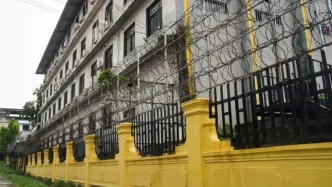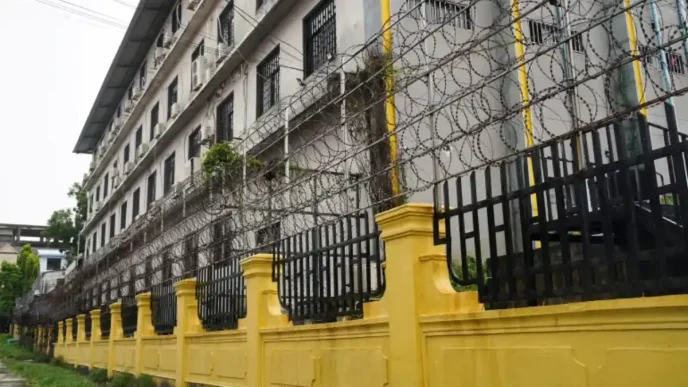As Singapore braces for its upcoming general election, Prime Minister Lawrence Wong has issued a rallying cry for national unity, emphasizing the high stakes in a rapidly shifting global landscape. Speaking to reporters in Hanoi on March 26, 2025, during a two-day visit to Vietnam, Wong underscored the need for a “strong and united Singapore” to navigate an increasingly challenging international environment. His remarks frame the election not merely as a mandate for the ruling People’s Action Party (PAP), but as a critical juncture for the city-state’s future.
A World in Flux: Global Challenges and ASEAN Solidarity
Wong’s comments come against a backdrop of profound geopolitical and economic shifts. He described a world where “competition is intensifying” and “trade barriers are going up,” with great power rivalry fostering an environment where stronger nations may resort to “aggression or even coercion” at the expense of smaller states. For a nation like Singapore, heavily reliant on global trade and regional stability, such dynamics pose existential challenges. “It feels like we are entering a world where it’s every country for itself,” Wong told Singaporean media, painting a stark picture of the inhospitable global order.
Yet, within this turbulence, Wong sees opportunity in regional cooperation. His recent visits to ASEAN countries—including Brunei, Malaysia, Laos, Indonesia, Thailand, and now Vietnam—since assuming the premiership in May 2024, have focused on strengthening ties with neighboring leaders. These introductory trips, he noted, have reaffirmed Singapore’s partnerships and identified new avenues for collaboration. “Even within ASEAN itself, the large countries on their own will feel that this is a very difficult, inhospitable global environment,” he said. “But if we can combine together… as a collective, we are much stronger, and we can hold our own.”
This vision of ASEAN unity is not merely diplomatic rhetoric. Singapore, as a small but economically significant player, has long championed regional integration as a buffer against external pressures. Analysts suggest that Wong’s emphasis on collective strength reflects a pragmatic strategy to counterbalance the risks of global fragmentation. With trade wars looming and superpower tensions escalating—particularly between the United States and China—Singapore’s role as a mediator and economic hub within ASEAN becomes ever more vital. If confirmed, Wong’s push for deeper regional ties could position Singapore as a linchpin in maintaining ASEAN’s relevance amid global uncertainty.
Election Stakes: Beyond a PAP Mandate
Domestically, Wong framed the upcoming election as a defining moment for Singaporeans. “In order to survive, in order to thrive, in order for us to navigate a very challenging global environment, we will need a strong and united Singapore” he said. “So there is much at stake in the elections.” His appeal transcends party lines, urging citizens to consider the broader implications of their vote. While affirming his intent to present a compelling case for the PAP, Wong expressed hope that Singaporeans would grant him and his team the opportunity to serve. “I hope Singaporeans will give me the chance to serve them and to serve Singapore” he added.
This messaging marks a subtle shift from traditional PAP campaigns, which have often centered on the party’s track record of stability and economic success. Wong appears to be casting the election as a referendum on Singapore’s resilience in an era of unprecedented external threats. Political observers note that this approach may resonate with a populace increasingly aware of global disruptions—from supply chain crises to geopolitical flashpoints in the South China Sea. However, it also places pressure on Wong to articulate a vision that balances domestic priorities with international strategy, a task made more complex by the PAP’s need to renew its appeal to younger, more diverse voters.
Leadership Renewal: Building for the Future
A significant portion of Wong’s Hanoi remarks focused on leadership renewal within the PAP, a priority he has championed since taking office. At the party’s conference in November 2024, he signaled his commitment to refreshing the leadership team, a process he described as ongoing and intensive. “I’ve been spending a lot of time doing that in the past one, two years” he said. “I could have just decided to do less on the renewal front and largely contest with the present team.”
Yet, Wong cautioned against short-term complacency. While the current team could likely sustain the party for the next five years, he warned that neglecting renewal would have severe consequences in the longer term. “If there is no renewal, I think we will feel the effects of it—not immediately, not even for the next five years, but certainly in the next 10 to 15 years” he said. “If that were to happen, it is not just the PAP, but Singapore and Singaporeans that will pay the price.”
His efforts to recruit new talent have yielded mixed results. Wong acknowledged the difficulty of persuading successful private-sector individuals—particularly those in their 30s and 40s poised for senior corporate roles—to enter politics. “The sacrifice is much greater” he noted, highlighting a perennial challenge for the PAP in attracting fresh faces from outside the public service. Despite this, he confirmed that some private-sector candidates, alongside public servants and academics, have stepped forward. The recruitment process, he explained, is rigorous and mutual, with potential candidates tested and given the chance to opt out if politics proves unsuitable. “You will see faces popping up on the ground” he said, hinting at emerging contenders ahead of the final slate.
This focus on renewal is not merely about optics. Singapore’s political system, dominated by the PAP since independence in 1965, relies on a pipeline of capable leaders to maintain its technocratic efficiency. Wong, as the fourth prime minister in the nation’s history, represents a generational transition himself. His predecessor, Lee Hsien Loong, handed over leadership after two decades, and Wong’s tenure is seen as a test of whether the PAP can adapt to a more contested political landscape while preserving its hallmark stability. If renewal efforts falter, critics argue, the party risks stagnation, potentially opening space for opposition voices to gain traction.
Navigating Domestic and Regional Expectations
Wong’s dual emphasis on global challenges and domestic renewal reflects the tightrope he must walk as prime minister. Singapore’s success has long hinged on its ability to anticipate and adapt to external shifts—whether economic downturns or geopolitical realignments. Yet, internal cohesion remains equally critical. With the general election looming, Wong must convince voters that the PAP, under his leadership, is not only equipped to handle immediate crises but also prepared to secure the nation’s future through thoughtful succession planning.
His outreach to ASEAN neighbors during his first year in office suggests a proactive approach to regional diplomacy, a cornerstone of Singapore’s foreign policy. By fostering closer ties with countries like Vietnam—a key economic partner with a rapidly growing market—Wong is laying the groundwork for collaborative solutions to shared challenges, from climate change to trade disruptions. However, the effectiveness of this strategy will depend on ASEAN’s ability to act cohesively, a goal often hampered by internal divisions over issues like the South China Sea disputes or differing alignments with major powers.
At home, the PAP faces a more discerning electorate. While the party has historically commanded overwhelming majorities, recent elections have seen growing support for opposition parties like the Workers’ Party, particularly among younger voters seeking greater political pluralism. Wong’s candid acknowledgment of recruitment challenges and the sacrifices required of new candidates may humanize the PAP’s image, but it also highlights the structural hurdles in diversifying its ranks. Whether his call for unity will translate into electoral support remains an open question, especially as global uncertainties amplify domestic concerns over cost of living and inequality.
Looking Ahead: A Test of Vision and Resolve
As Singapore approaches its next electoral chapter, Prime Minister Lawrence Wong’s message is clear: unity and forward-thinking leadership are non-negotiable in a world fraught with risk. His tenure, barely a year old, is already defined by the dual imperatives of regional solidarity and domestic renewal. Whether through strengthening ASEAN’s collective voice or rejuvenating the PAP’s leadership, Wong is positioning himself as a steward of stability in turbulent times. Yet, as the election draws near, the true measure of his leadership will lie in his ability to inspire confidence among Singaporeans that their small nation can not only survive but thrive amid global upheaval.














